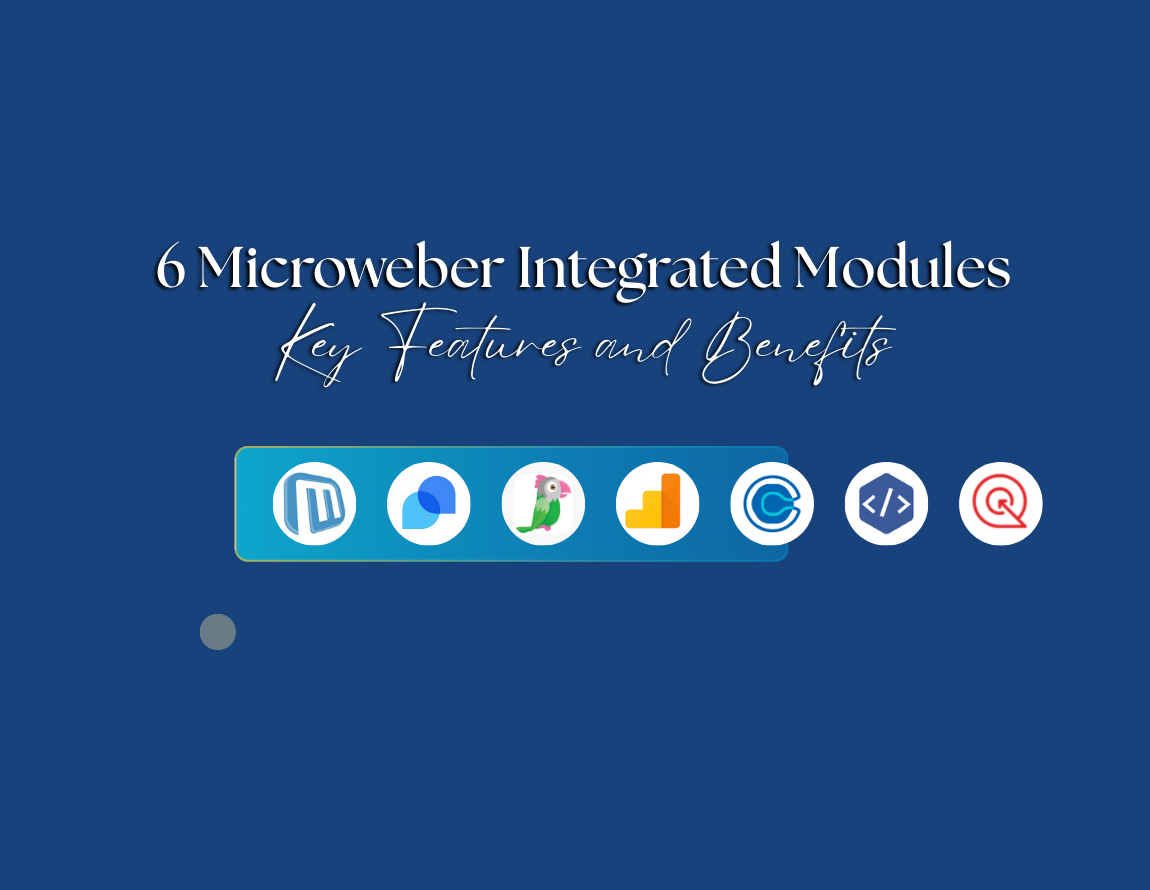Exploring the Cloud: Microweber and Microsoft Azure Interlinked
Posted on: November 04, 2024 Updated on: November 04, 2024 by Nada Allam
In the ever-evolving landscape of website development and management, integration between platforms is crucial to unlocking new possibilities and efficiencies. One such integration that holds significant promise is the partnership between Microweber and Microsoft Azure.
This collaboration brings together Microweber's intuitive website-building capabilities with the powerful cloud services offered by Microsoft Azure. Let's delve into the details of this integration and explore the benefits it offers to users.
Seamless Deployment and Management
This will make the process of publishing and managing websites in cloud infrastructure at Microsoft Azure smoother for its users.
Azure scales websites to meet demands with a comprehensive range of services offered that include virtual machines, storage, databases, and many more, without having to worry about infrastructure limitations.
Besides, intuitive management tools in Azure give users a view and full control to monitor the performance of their website to make them more efficient.
Enhanced Security and Compliance
While security is one of the most crucial considerations of any website owner, integration with Microsoft Azure ensures that users can tap into best-in-class security to safeguard their Microweber websites and data.
Comprehensive security with Azure-from built-in threat protection and identity management to compliance certification-allows users to protect their websites against cybersecurity threats while remaining compliant with industry regulations and standards.
Moreover, it gives users peace of mind in knowing that these websites are safeguarded in the ever-evolving threat landscape.
 Global Reach and Scalability
Global Reach and Scalability
Another strong advantage is its global reach and scalability with cloud infrastructure from Microsoft Azure. With different data centers in regions around the world, Azure easily enables users to deploy their websites closer to their target audience, thereby reducing latency and increasing performance.
Moreover, auto-scaling in Azure allows websites to dynamically scale up or down depending on the traffic demand for better performance while efficiently using costs. Such scalability is ideal for companies with periodic or seasonal spikes in traffic.
Integration with Azure DevOps
The integration of Microweber with Microsoft Azure goes further than just website deployment and management, including integration with Azure DevOps for extended collaboration and smooth development processes in teams working on websites with Microweber.
Azure DevOps now empowers teams to collaborate using version control, continuous integration, and automated testing to reduce development cycles and accelerate high-quality website delivery at a faster pace.
This tight integration of development and operations allows teams to be innovative and iteratively confident in driving businesses toward growth and success.
Cost-Effective Solutions
With Microsoft Azure, pricing has been made flexible to fit the needs and budgets of businesses of all sizes.
Whether it's launching a new website or scaling an existing one, Azure gives users a pay-as-you-go pricing model: pay only for what they use, without upfront investments in hardware or infrastructure.
Also, Azure's cost management tools provide visibility into cloud spending for the end-user in order to optimize costs and ensure maximum ROI.
Maximizing Efficiency with Azure AI
Azure AI bundles an extensive portfolio of services for intelligent content creation and optimization, personalization of user experiences, and predictive analytics, all integral in enabling users of Microweber to optimize efficiency and effectiveness at every juncture of their online presence.
Thanks to the seamless integration with Azure AI in the intuitive Microweber platform, unleash Artificial Intelligence on your website and make it dynamic, full of life, and engaging for your audience to take desired business results.
Conclusion
The integration between Microweber and Microsoft Azure represents a powerful synergy between two industry-leading platforms, offering users a seamless and comprehensive solution for website development and management.
With Azure's robust cloud infrastructure, security features, global reach, and scalability, combined with Microweber's intuitive website-building capabilities, users can unleash their creativity, drive efficiency, and achieve their online goals with confidence.
As businesses continue to embrace digital transformation, the integration between Microweber and Microsoft Azure paves the way for innovation and growth in the digital era.
FAQ
What is cloud computing?
Cloud Computing is basically a model of delivering various different computing services over the internet, which is referred to as "the cloud". Some of the services include servers, storage, databases, networking, software, and many more.
Services are offered upon request by cloud service providers, like Microsoft Azure, in contrast with the need to have or own physical hardware or infrastructure.
How does Azure benefit Microweber users?
Azure cloud infrastructure provides scalable, reliable resources to users by meeting the growing demands of any website. The rich set of security features in Azure keeps Microweber websites safe from cyber threats, while its scalability and global reach enable users to deliver seamless user experiences across the globe.
On top of that, Azure's integration with Microweber smoothes out the deployment and management processes by furnishing users with the tools and flexibility needed, hence enabling them to pull their weight in the digital landscape.
In general, Microsoft Azure means a really powerful and flexible ground for creativity, driving innovation, and meeting online objectives given to users by Microweber.
How does cloud computing differ from traditional website hosting?
Cloud computing also makes available the functionality for computing resources to become more agile and scalable than the fixed IT models of old, with business access much quicker and more efficiently without having to make large upfront investments in hardware or infrastructure.
They can scale resources up or down according to their demands, pay for only what they use, and enjoy high availability, security, and reliability from the cloud service providers.






